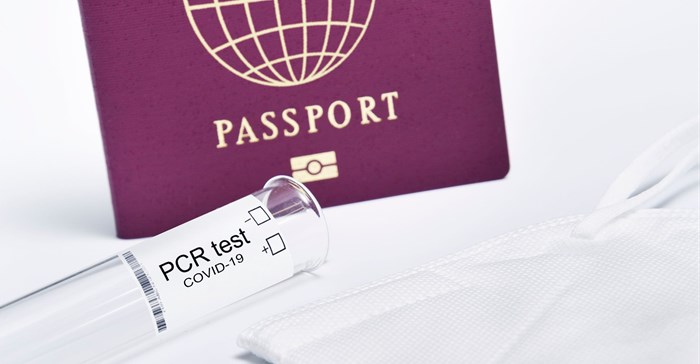Africa's reliance on imported Covid-19 test kits threatens right to health

The report, commissioned by the People’s Vaccine Alliance and authored by health experts from Matahari Global Solutions, focuses on Mpox and Covid-19 as examples of the inequality in access to tests in developing countries.
It comes as the World Health Organization (WHO) considers a resolution proposing a range of measures to improve access to diagnostic tests for all diseases.
The authors call for governments and international institutions to urgently invest in local production of diagnostic tests, to ensure developing countries are not reliant on producers from rich countries who dominate the global market.
They call for action to support the production of generic tests, including sharing technology, know-how, and intellectual property rights with producers in low and middle-income countries.
This includes bringing Covid-19 tests into a deal reached at the World Trade Organization in June that eased some patent protections for vaccines.The report warns that poor access to rapid testing threatens the right to health, recommending that governments balance requirements to monitor diseases using tools like PCR tests with ensuring ease of access to rapid antigen tests, particularly in rural areas.
The shocking findings include:
This means “if you’re in New York or London – that would be a different scenario compared to if you are in Bangui (Central African Republic), or even worse, 100 kilometres outside Bangui.”
Components of automated PCR machines are patented until the end of 2037 and therefore cannot be replicated. Lower-income countries cannot produce these for themselves as there has been no transfer of technology or sharing of know-how.
However, Brook Baker, a senior policy analyst at Health Gap instrumental in advancing Covid-19 test-and-treat discussions in the WHO’s Access to Covid 19 Tools (ACT)-Accelerator, warned: “PCR tests are significantly more expensive; depend on expensive laboratory equipment, a highly trained workforce, and specimen collection and transportation to central facilities; and often result in serious delays in reporting results to patients and clinicians.”
Mohga Kamal-Yanni, policy co-leader for the People’s Vaccine Alliance, said: “While people in rich countries were able to get rapid antigen tests for Covid-19, our families and friends across the world were denied access.
"This research clearly lays out the system of diagnostics apartheid that emerged, where people in developing countries could not afford the price of tests when symptomatic, and testing of contacts to monitor disease spread was out of the question. Unless world leaders act today, the same inequality will be repeated in the next health crisis, with disastrous impacts.”
Fifa A Rahman, principal consultant, Matahari Global Solutions, said: “Access to diagnostic testing is an essential part of the right to health that has been denied to many in low and middle-income countries, with profound consequences.
"We know that many cases in Africa went undetected, simply because people in many countries haven’t had the opportunity to test. In the next pandemic – and in the remainder of this one – testing needs to be made available as a matter of human rights.
"Removing barriers to accessing diagnostics is essential to save lives – and to understand just how widespread a disease is.”In his opening remarks at the WHO executive board meeting this week, director-general Tedros Adhanom Ghebreyesus underlined the under-reporting of Covid-19 cases, saying: “In the past eight weeks, more than 170,000 people have lost their lives to Covid-19. And that’s just the reported deaths; we know the actual number is much higher.”
































